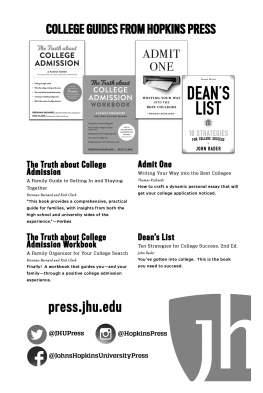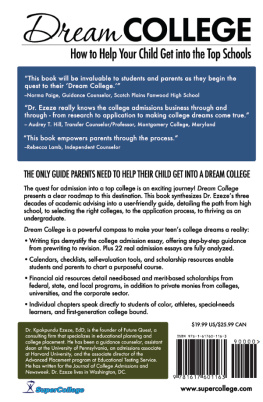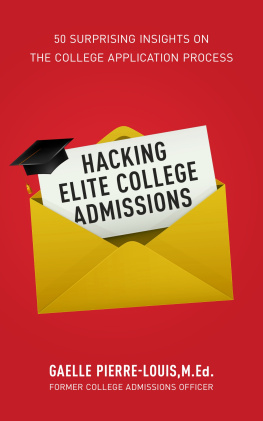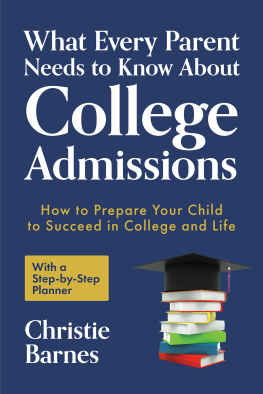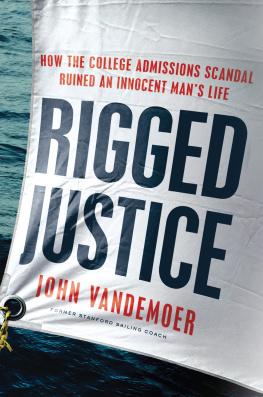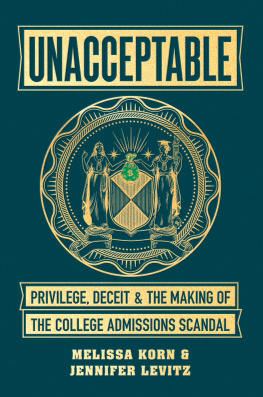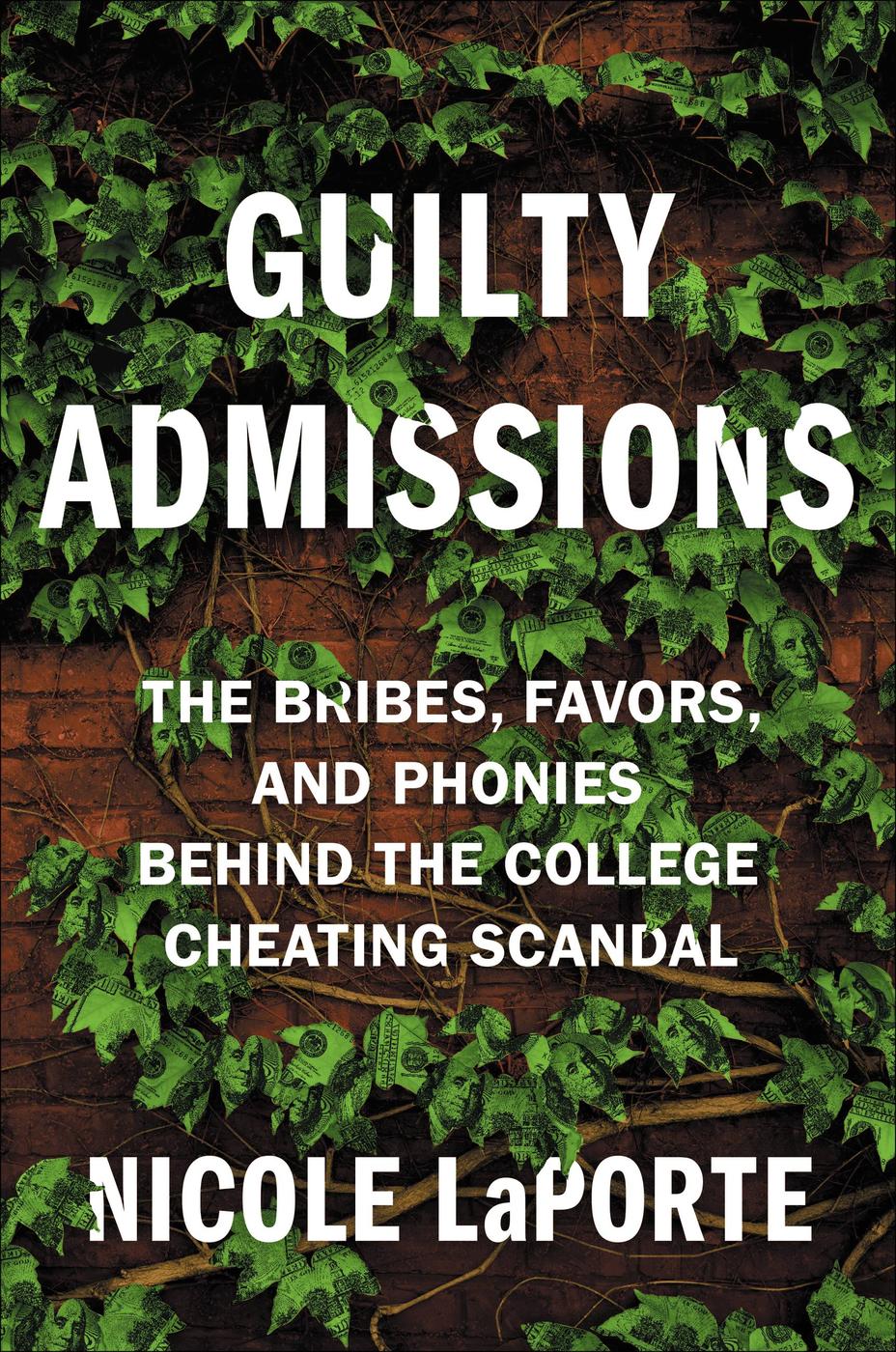
Copyright 2021 by Nicole LaPorte
Cover design by Jarrod Taylor. Cover copyright 2021 by Hachette Book Group, Inc.
Hachette Book Group supports the right to free expression and the value of copyright. The purpose of copyright is to encourage writers and artists to produce the creative works that enrich our culture.
The scanning, uploading, and distribution of this book without permission is a theft of the authors intellectual property. If you would like permission to use material from the book (other than for review purposes), please contact permissions@hbgusa.com. Thank you for your support of the authors rights.
Twelve
Hachette Book Group
1290 Avenue of the Americas, New York, NY 10104
twelvebooks.com
twitter.com/twelvebooks
First Edition: February 2021
Twelve is an imprint of Grand Central Publishing. The Twelve name and logo are trademarks of Hachette Book Group, Inc.
The publisher is not responsible for websites (or their content) that are not owned by the publisher.
The Hachette Speakers Bureau provides a wide range of authors for speaking events. To find out more, go to www.hachettespeakersbureau.com or call (866) 376-6591.
Library of Congress Control Number: 2020938839
ISBNs: 978-1-5387-1709-7 (hardcover), 978-1-5387-1708-0 (ebook)
E3-20210121-DA-PC-ORI
For Alexei & Katrina
Explore book giveaways, sneak peeks, deals, and more.
Tap here to learn more.

Those who have power ought not exercise it wrongfully. Nor when they are fortunate should they imagine that they will be so forever.
Euripedes (engraved on a statue of Hecuba at the University of Southern California)
O ne fall evening in 2016, Frank Bruni, the author and New York Times op-ed columnist, took to the stage of the auditorium at Harvard-Westlake School in Los Angeles. Bruni had come to the elite institution, whose forebears proudly proclaimed it the leading prep school west of the Charles River, to talk about his book Where You Go Is Not Who Youll Be. The presentation was part of the schools annual Senior College Night, when parents of students in the senior class gather to have the mysterious and often infuriating process of applying to college demystified.
Harvard-Westlakes upper-school campus sits in the craggy foothills of Coldwater Canyon, a sylvan corner of the city where luxury SUVs careen down winding, wooded roads that splinter off into cul-de-sacs dotted with midcentury architectural masterpieces wedged into the mountainsideor leaning against it on terrifying one-hundred-foot stilts. Here, nature and wealth seamlessly coexist in a kind of stubborn harmony. If you can dream it, you can build it, mudslides and gravity be damned. Situated less precariously, at the foot of the canyon, Harvard-Westlake brings an old-world vibe to these distinctly LA environs. The schoolwhich was originally the all-boys Harvard Schoolmoved to the site in 1937, marking the territory with a Tudor-style chapel that was a replica of a chapel at Rugby School in England. Harvards founders built its version in 1914, and when the school made the move from another area in the city to Coldwater Canyon, the sanctuary was dragged across town in sixteen pieces. The chapel still stands proudly as a reminder of Harvard-Westlakes aspirational ties to blue-blooded prep schools farther east.
But if Harvard-Westlake originally functioned as a finishing school for young white Protestant maleswho dined on lobster Newburg and caught glimpses of Clark Gable trotting across campus on horsebacktoday the school, which is much more ethnically if not economically diverse, is considered a rocket launcher to twenty-first-century success. Its the ultimate bumper-sticker school, declared one LA parent. Gettys, Fairbankses, and Gyllenhaals have all received diplomas from Harvard-Westlake, whose handsome red-roofed campus has led some to dub it a mini Stanford.
The comparison goes beyond physical attributes. More so than any other school in LA, Harvard-Westlake is proudly steeped in the religions of rigor and working your ass off. Some view it more as a corporation than a place of higher learning. The schools top administrator carries the title of president, along with the more folksy head of school moniker adopted by other private schools in the area. Students slog through hours of homework a night in their college-level literary theory and microeconomics courses, and scoff at more progressive institutions across town, like Crossroads School, where there are no AP offerings and academia is considered just one part of a holistic journey. Until recently, a lunch break wasnt mandatory at Harvard-Westlake, meaning many kids would eat on the run, in order to keep grinding. Type A on steroids is how one Harvard-Westlake parent described the schools ethos. Everyone is competing with each other, and people are determined to win.
Brunis talk was part of the schools effort to calm nerves and send the message that life isnt, in fact, all about winningspecifically when it comes to getting into college. His book, after all, was a rebuke of the notion that success in life is dependent on an Ivy League degree. So what if your kid didnt get into Princeton? His research had proven that reams of highly successful peopleformer US secretary of state Condoleezza Rice; former Starbucks CEO Howard Schultz; and Doug McMillon, CEO of Walmartwere doing just fine without an Ivy League diploma. What mattered, he told the crowd that evening, is the experience kids have wherever they wind up, not to mention their family and personal relationships and the communities they involve themselves in; all of this is far more important when it comes to crafting an identity and sense of self than a sweatshirt bearing the name of a prestigious college.
There are places where this message might be embraced and celebrated, where the idea of sending a child off to one of the Colleges That Change Livesas former New York Times education editor Loren Pope dubbed intellectually stimulating but obscure colleges such as Goucher and Hopewould be considered sound advice. But Harvard-Westlake, which has an annual tuition of $39,700 and is populated by the offspring of the citys top entertainment executives, attorneys, and business titans, is not one of them.
As one parent who was in attendance that night put it: Everyones sitting there like, I pay forty thousand a year, and my kid kills himself doing the work. Nobody wants to hear that Wash U is a fantastic place. Its Harvard, Harvard, Harvard. Maybe Princeton.
This mind-set, which dominates the elite world of LA education, explains why the city was the epicenter of the Varsity Blues scandal, which broke in March of 2019, and why parents here were so easily swindled by a con man. Dubbed the biggest college admissions fraud of all time, the scandal was masterminded by William Rick Singer, an independent college counselor based just south of Los Angeles, in Newport Beach, California, who used bribery and fake athletic profiles to get students admitted to such universities as Yale, Georgetown, and the University of Southern California. Criminal charges so far have been brought against forty parents, including actresses Felicity Huffman and Lori Loughlinthe latter paid $500,000 to get her two daughters into USC as fake crew recruitsand has reverberated nationwide ever since.
Harvard-Westlake has not been implicated as part of Varsity Blues, but prominent parents at the school hired Singer for his (legitimate) services and recommended him to others. Indeed, the school, along with a handful of other top private academies in Southern Californiawhere more than a dozen of the charged parents resideprovides a lens through which to examine the culture that exists surrounding college admissions in the wealthiest, most privileged pockets of the country. By peeling back the layers of this culture, one begins to grasp why many of these parents went to the lengths they did, and why they risked so muchincluding jail termsin order to get their children into the right college.





